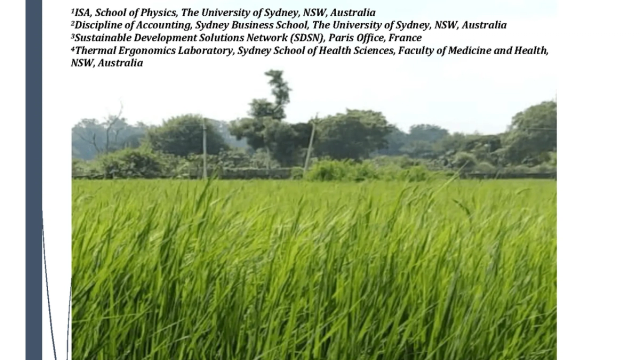SDSN releases a Study on International spillovers embodied in the European Union's (EU's) food supply chains.
Take a deep dive into the environmental impacts generated through the EU’s food supply chains.
Human demand for agri-food products contributes to environmental degradation in the form of land-use impacts and emissions into the atmosphere.
Together with the University of Sydney and Deutsche Gesellschaft für Internationale Zusammenarbeit (GIZ) GmbH on behalf of the German Federal Ministry for Economic Cooperation and Development (BMZ) , SDSN published today “Making globalisation and trade work for people and planet: International spillovers embodied in the European Union’s (EU’s) food supply chains” . This is SDSN’s second collaboration with both partners. The first one resulted last year in the release of a study focused on social spillover effects in the EU’s textile supply chains.
The EU is the third largest importer of food products in the world. In this study, we quantify emissions (carbon dioxide, particulate matter, sulphur dioxide, nitrous oxide), land use, employment and income-related impacts embodied in EU’s demand for agri-food products. We trace these environmental and social impacts across EU’s trading partners to identify specific sectors and regions as hotspots of international spillovers embodied in EU’s food supply chains and find that these hotspots are wide-ranging in all continents.
Tracing spillovers for the European Union by country of origin of imports for CO2
EU’s food demand is responsible for 5% of the EU’s total CO2 consumption-based footprint, 9% of the total NOX footprint, 16% of the total PM footprint, 6% of the total SO2 footprint, 46% of the total land-use footprint, 13% of the total employment footprint, and 5% of the total income footprint. Our results serve to inform future reforms in the EU for aligning policies and strategies with the SDGs and the objectives of the Paris Agreement by offering evidence on sectors and countries most impacted.
Sector-level spillover impacts for environmental indicators, according to producing sectors that feed into EU’s food supply chains
An online event will take place beginning of 2022 and will bring together practitioners and experts to discuss the issue of international spillovers embodied into EU’s trade and consumption in the context of the Sustainable Development Goals and Paris Climate Agreement. The European Green Deal and fit for 55 packages aim to make the EU the first carbon neutral continent in the world. Yet, EU’s consumption of goods and services lead to environmental impacts elsewhere in the world, including Greenhouse gas emissions and deforestation and social impacts, which need to be monitored and addressed. The event will be the opportunity to formally introduce this new study. It will also underline the importance of domestic policies and mechanisms, technical cooperation and diplomacy and robust data and statistics to address trade-related international spillovers ahead of the 2022 High-Level Political Forum.
Overall, by providing granular assessments of where in the world those negative environmental impacts take place and which specific agri-food commodities are responsible for such impacts (e.g., meat and fish, crop growing, cocoa, livestock farming etc.) we hope that this study provides a useful contribution to help inform policies that aim to align specific supply chains with the objectives of the Sustainable Development Goals and Paris Climate Agreement.
→ Click here to read the full study.
